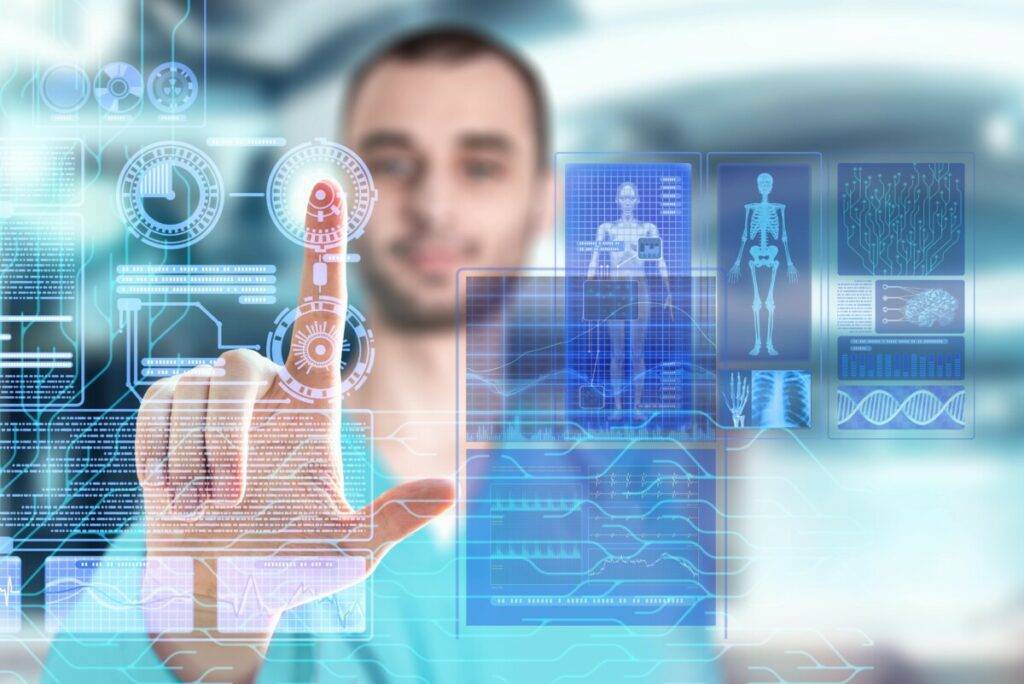
AI is having a significant impact on healthcare technology and will continue to transform the industry as the technology evolves. Here are some ways AI is influencing healthcare technology:
1: Diagnostic Accuracy: AI algorithms can analyze medical images (like X-rays, MRIs, and CT scans) with high precision, aiding doctors in diagnosing diseases such as cancer, heart conditions, and neurological disorders. AI can quickly identify patterns and anomalies that might be missed by human eyes.
2: Personalized Treatment: AI can process large volumes of patient data to create personalized treatment plans. By considering an individual’s genetic makeup, medical history, and other factors, AI can suggest targeted therapies and predict which treatments are likely to be most effective for a particular patient.
3: Drug Discovery: AI is accelerating drug discovery by analyzing massive datasets and predicting potential drug candidates. This can significantly reduce the time and cost required for developing new medications.
4: Predictive Analytics: AI algorithms can predict disease outbreaks and epidemics by analyzing data patterns. This is especially crucial for monitoring and responding to emerging public health threats.
5: Virtual Health Assistants: AI-powered chatbots and virtual health assistants can provide patients with instant medical advice, answer questions, and even help with medication management.
6: Robotic Surgery: AI-assisted robotic systems can enhance surgical precision and reduce the evasiveness of procedures. Surgeons can use robotic arms to perform delicate tasks with greater accuracy.
7: Remote Monitoring: AI enables continuous remote monitoring of patients, particularly those with chronic conditions. Wearable devices can collect data on vital signs and alert healthcare providers to any concerning changes.
8: Fraud Detection and Billing: AI can help identify fraudulent billing practices and streamline administrative tasks in healthcare billing and insurance claims processing.
9: Natural Language Processing: AI-powered language models can analyze and extract information from medical records, research articles, and clinical notes, assisting researchers and clinicians in staying up-to-date with the latest developments.
10: Genomic Analysis: AI can analyze complex genomic data to identify genetic factors contributing to diseases and potential treatment options.
11: Population Health Management: AI can analyze large population datasets to identify health trends, assess risk factors, and guide public health interventions.
12: Clinical Decision Support: AI systems can assist clinicians in making more informed decisions by providing evidence-based recommendations and alerts for potential risks or adverse events.
13: Emotional and Mental Health Support: AI-powered tools can monitor patients’ emotional and mental health, offering early intervention and support.
14: Drug Dosage Optimization: AI can assist in determining the optimal dosage of medications for individual patients based on their specific characteristics and responses.
15: Radiation Therapy Planning: AI can aid in planning radiation therapy by optimizing treatment plans for maximum effectiveness while minimizing damage to healthy tissues.
These are just a few examples of how AI is influencing healthcare technology. As technology continues to advance, AI’s role in healthcare is expected to expand, leading to more efficient processes, innovative medical solutions and ultimately, improved patient outcomes.


